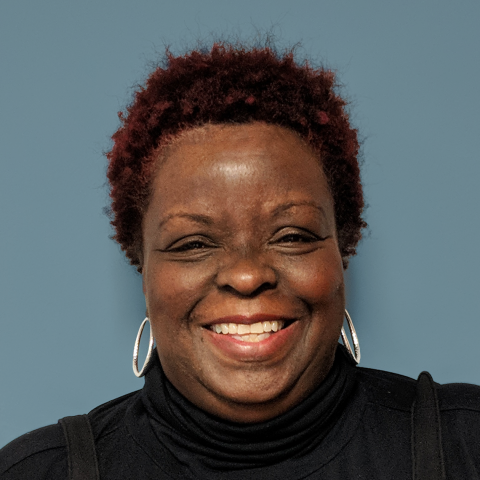NICHQ Employee Spotlight: Stacy Scott 2022 Update

Full name and title: Stacy D. Scott, PhD, MPA, Executive Project Director and Equity Lead
Years with NICHQ: 3 years as a project director; multiple years as an expert partner
How has your background/experiences led you to join a national children’s health organization?
I am a public health advocate and infant safe sleep expert with work ranging from the government agency level to ground zero, spearheading numerous community outreach programs nationwide to end health disparities and reduce the risk of sudden unexpected infant deaths (SUID). I am the founder of the Global Infant Safe Sleep (GISS) Center in 2016, an organization with a mission to support marginalized global communities to reduce Sudden Unexpected Infant Death. I serve as a co-director of the Ohio Collaborative to Prevent Infant Mortality (OCPIM), a statewide coalition with a mission to eliminate preventable infant mortality and improve the health of birthing people of childbearing years throughout the state of Ohio. I am an executive project director and equity lead for NICHQ; I’m provided with an excellent opportunity to impact families and achieve better outcomes for all children. Recognizing the importance of inclusivity and operating with cultural rigor, NICHQ’s mission is aligned with my passion for being a champion for social justice and an agent of positive change.
Favorite memory from a NICHQ project:
I have to say I have several memorable memories. These last three years have been action-packed. Becoming an executive director and equity lead has afforded me opportunities to oversee major initiatives dedicated to improving the lives of families across the nation. My favorite memory is being able to build awareness and educate NICHQ’s internal staff during our equity in-services on what it takes to become an Equity-Empowered organization. This action’s impact ensures that all of NICHQ’s projects operate under an equity lens, and we have the tools to champion social justice and promote an anti-racism framework.
Biggest lesson-learned when working on a quality improvement project:
Incorporating anti-racism strategies is critical in effecting positive change in health care systems.
Funniest thing that ever happened on a NICHQ project:
Remember being stuck in the airport numerous times no matter the location and now looking forward to being stuck in the airport no matter the location.
What are you most proud of from your time with NICHQ?
I am extremely proud to be a catalyst for change. NICHQ has provided me the opportunity to build on both my educational achievement and lived experience. Over the last year, the National Action Partnership to Promote Safe Sleep (NAPPS-IIN) provided a platform that gave a national voice to people at the grassroots and community level whose stories often go unheard and to agencies and community-serving organizations with the heavy lift of educating and supporting families on the importance of safe sleep and breastfeeding.
Being able to showcase a doula in Mississippi joining the video call with a birthing smock, covered hair, and sweat on her brow – who had just delivered a baby – to speak about the challenges of the pandemic and being shut out of hospitals when women and families needed them the most; listening to community health advocates in Milwaukee, Wisconsin – among the first cities to declare racism a public health crisis – swap stories of despair and share best practices in the fight for access and against racism in their communities; witnessing first responders in Toledo, Ohio, reveal their role in keeping babies safe as they pass along information to parents and families during emergency runs. And providing an Alaskan breastfeeding advocate to share the devastating impact of living remotely and how to nurture a culture of breastfeeding that’s part of her ancestry for me sums up the true essence of the work. The lived experience of individuals is the foundation for which change is built.
What are your goals for NICHQ’s future?
My goal is to increase NICHQ’s social justice capacity by working in collaboration with my colleagues and funders to ensure equitable outcomes for all.
